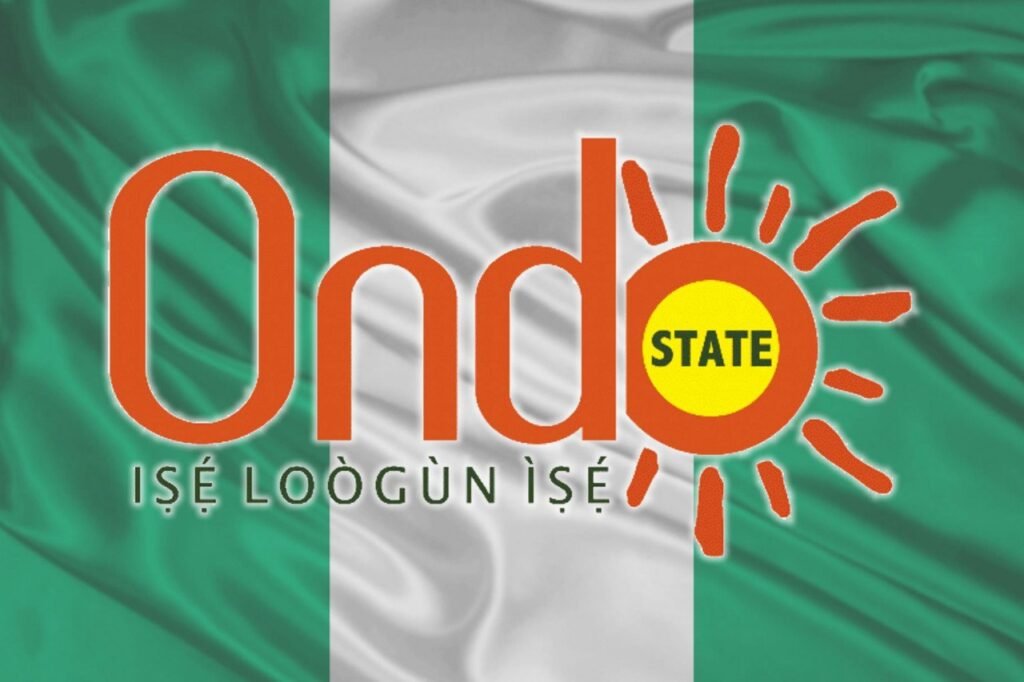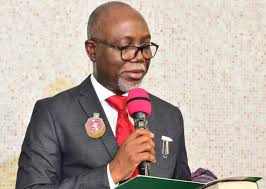
By Bankole Orimisan
Governance in Ondo State over the past 15 years has reflected a spectrum of development priorities, with each of its last three governors Olusegun Mimiko, Rotimi Akeredolu, and Lucky Aiyedatiwa leaving a distinctive mark on the lives of citizens. From education and healthcare to infrastructure and fiscal management, the performance of these leaders continues to shape public discourse across the state.
Olusegun Mimiko, who governed from 2009 to 2017, is widely credited with prioritizing social welfare, education, and healthcare. His most celebrated initiatives include the Caring Heart Mega Schools and the Abiye Safe Motherhood Programme. These mega schools provided world-class facilities to underserved communities, giving thousands of children access to free education and school meals. His administration covered WAEC and NECO fees, and within a few years, Ondo’s performance in national exams improved significantly, with the state moving into the top 10 rankings nationally.
Mimiko’s maternal health reform, the Abiye Initiative, tackled high maternal mortality rates. The programme introduced mobile midwives, health rangers, and safe delivery centers, earning global recognition for reducing maternal deaths by over 80%. Women in rural areas had access to antenatal care, ambulance services, and skilled birth attendants all at no cost. By the end of Mimiko’s tenure, Ondo was being cited as a model for maternal care in Nigeria.
In contrast, Rotimi Akeredolu, who served from 2017 until his passing in 2023, redirected the state’s focus towards infrastructure development. His administration invested heavily in road construction, delivering over 294 kilometers of new and rehabilitated roads across the three senatorial districts. Projects like the Akunnu–Ikaram–Oke-Agbe road and the Oba/Ido-Ajani link which had been abandoned for nearly two decades were completed, opening up access to long-neglected communities and boosting trade and security.
Akeredolu’s governance style was firm and focused on foundational infrastructure, including building bridges, dualizing roads, and rehabilitating rural markets. He also introduced the Orange Health Insurance Scheme (ORANGHIS), which sought to expand healthcare access through insurance, although its impact was more modest compared to Mimiko’s Abiye programme. Akeredolu’s time in office saw an increase in internally generated revenue from around ₦700 million monthly in 2017 to approximately ₦2 billion monthly by 2022, but he faced criticism for accumulating debt and leaving several projects incomplete before his health declined.
Lucky Aiyedatiwa, who assumed office in late 2023, has positioned himself as a reformer focused on fiscal discipline, civil service modernization, and continuity. In just under a year, Aiyedatiwa’s administration reduced the state’s domestic debt stock from ₦74 billion to ₦12 billion, achieving an 82.6% debt reduction the sharpest decline of any state in Nigeria within the same period. This was done without cutting social programs or public salaries, a move that has earned him praise for prudent financial management.
In terms of development, Aiyedatiwa has completed several legacy projects inherited from Akeredolu’s administration, including the long-awaited completion of Oda Road and the Akure Flyover.
He has also launched new initiatives, including soft loans of over ₦2 billion to micro-enterprises, digital skills training for youths, and clean energy installations in rural health centres. Civil service reforms have been a cornerstone of his agenda, with new recruitment drives, digitization efforts, and a wage increase to ₦73,000 the highest sub-national minimum wage in the country.
Despite the short duration of his administration so far, Aiyedatiwa has also pushed for the completion of abandoned health facilities and introduced plans for universal access to the Orange Health Insurance Scheme, especially targeting retirees and workers in the informal sector. His approach to governance has been described as consultative, data-driven, and cautious, avoiding wasteful expenditure while delivering tangible results.
Public opinion across Ondo State reflects a nuanced appreciation for each governor’s strengths. Residents in Akoko communities speak highly of Akeredolu’s road projects that finally connected them to urban centers. Civil servants and schoolteachers recall the transformative policies of Mimiko that lifted public education and reduced maternal deaths. Meanwhile, traders and small business owners in Akure and Okitipupa credit Aiyedatiwa’s soft loan schemes for helping them restock goods amid economic hardship.
Analysts suggest that Mimiko’s government stands out for human development and social investment, particularly in health and education. Akeredolu’s government is widely acknowledged for physical infrastructure and improved security through the Amotekun Corps. Aiyedatiwa is carving a niche in fiscal prudence, transparency, and digital modernization, with attention to completing ongoing projects and reviving key public institutions.
In terms of employment and economic empowerment, Mimiko introduced programmes like the Wealth Creation Agency and agro-enterprise hubs. These initiatives targeted unemployed youths, providing them with farmland, tools, and training to create sustainable businesses. Akeredolu’s job creation strategy was less direct but hinged on building infrastructure to stimulate private sector growth. Aiyedatiwa, on the other hand, has taken a hybrid approach providing both digital skills training and access to startup funding.
While Mimiko’s legacy is anchored on improving lives through education and health, Akeredolu’s administration transformed the physical landscape with bold infrastructure projects. Aiyedatiwa’s short time in office has been marked by responsible fiscal policy and strategic continuity. He has not launched flashy new programmes, but his ability to finish what others started, reduce debt, and reinvest in the basics like public health, sanitation, and youth empowerment has begun to win over skeptics.
Each governor has operated under unique national challenges economic recessions, oil price volatility, and fluctuating federal allocations yet their responses offer a study in contrasting leadership styles. Mimiko’s people-first governance model invested directly in social goods. Akeredolu’s technocratic approach pursued hard infrastructure. Aiyedatiwa, so far, blends both tendencies, operating with caution and a long-term view.
As Ondo State moves toward the next election cycle, residents and stakeholders are closely watching how Governor Aiyedatiwa will consolidate the gains of his predecessors while delivering fresh value. The expectation is that he will not only stabilize the state’s finances but also elevate the quality of life through smart governance, inclusion, and service delivery.
The journey of Ondo’s transformation is still being written, but the legacies of Mimiko, Akeredolu, and Aiyedatiwa already offer valuable lessons in leadership, policy focus, and the enduring impact of governance that puts people first.
Article Written by Bankole Orimisan,
a journalist and public analyst,
based in Lagos, Nigeria.
Email: coletechcentre@yahoo.com








